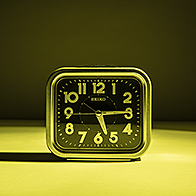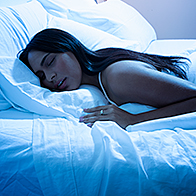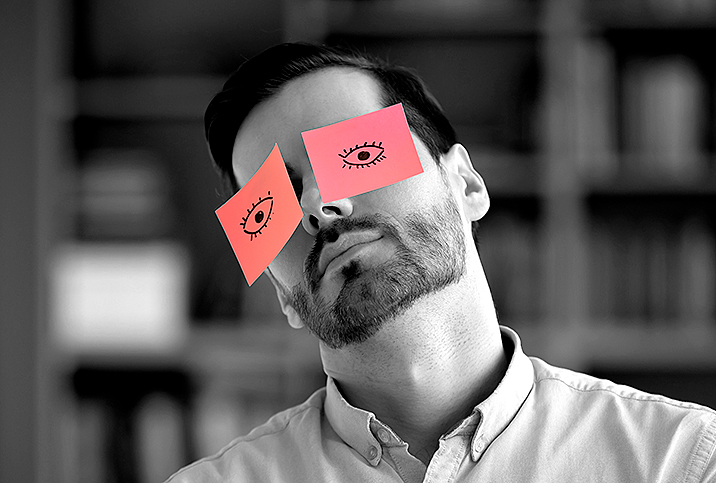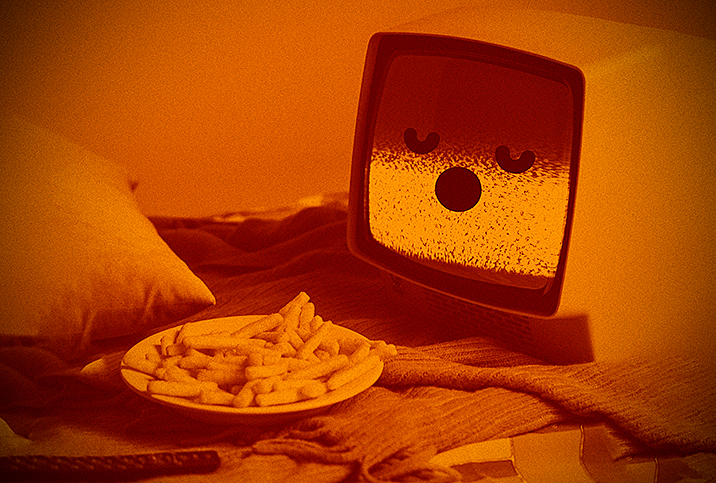How Sleep and Light Are Fundamental to Your Health
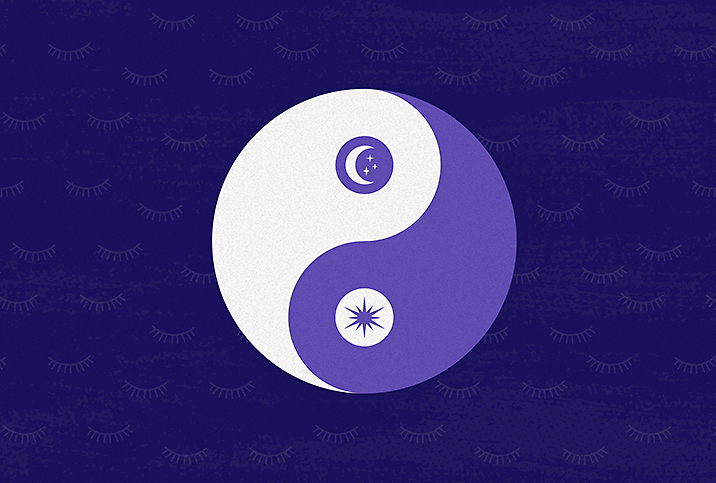
By now, you've probably heard about the various studies that say you should shut down your electronics an hour before bedtime.
Even if you disregard this wisdom and lie in bed endlessly scrolling through cute cat pics on Instagram, or find yourself sucked into the latest idiocy on Twitter (Twittdiocy?), you're no doubt aware that the blue light emanating from your phone is not good for you, as evidenced by eye strain or an ever-later sleep time.
We all know we should put down the phone and shut off the computer—and we all mostly ignore this advice. But if vague warnings aren't convincing you, maybe what it will take is a closer look at what's going on in your body when you keep your phone on too late.
Sleep and melatonin
You can sleep during the day if you're able, but science says your body isn't really designed to do that. Special subgroups of photosensitive cells in the retina are finely calibrated to respond to light and have a profound impact on the way the body produces melatonin, a hormone that regulates the sleep cycle.
"Melatonin is created in the brain in response to darkness," said Alon Avidan, M.D., head of the UCLA Sleep Disorders Center. "When you interfere with that by working on a computer or being in front of a screen, the release of that melatonin could be delayed or inhibited, and that creates some circadian abnormalities."
There are plenty of vitamin shops that will happily sell you melatonin supplements. However, a meta-study published in Sleep Medicine Reviews that investigated the results from 5,030 previous studies concluded more trials are needed to prove the efficacy of melatonin supplements to help you sleep.
You simply need the brain and body's natural melatonin to function correctly, and for that you need darkness.
Cycling in your sleep
Melatonin production is the first step in a complex, interlocking system of sleep cycles that work together in a precise order to enable the brain to perform critical maintenance while we sleep.
"You have more deep sleep at the beginning of the night to kind of clean things up and recover and restore," said Ellen Stothard, Ph.D., research and development director of the Colorado Sleep Institute. "And then you have more REM sleep in the later parts of the night to do a lot of memory consolidation and rewiring of your brain. If you're cutting off your sleep in the early morning, you're going to be experiencing physiological detriments, memory detriments, things like that."
People who chronically undersleep are more anxious and depressed, and quicker to anger.
Beyond memory loss, studies show chronically sleep-deprived people demonstrate loss of function in the frontal lobe of the brain, where the executive function occurs, including verbal fluency, creativity and planning.
According to Avidan, the frontal lobe is where the brain regulates negative emotions, meaning people who chronically undersleep are more anxious and depressed, and quicker to anger.
"It's been shown that physicians who have been on-call in the hospital without sufficient rest can experience loss of professionalism, and an inability to properly take care of patients or be nice to each other," Avidan said. "It led in 2006 to a move in the direction of reducing work hours of resident physicians, so they're less sleep-deprived."
So I'm a little sleepy—so what?
In order to get healthy, restful sleep, your body needs seven to eight hours to cycle through these various levels of non-REM sleep and REM sleep. If you mess with light, and thus the initial production of melatonin, you not only fall asleep later but throw a monkey wrench into the whole system.
"There are certain hormones that are produced sequentially as one goes through the sleep cycles, from non-REM sleep into REM sleep," Avidan said. "There are certain growth hormones, certain hormones that are associated with wakefulness, and they're specifically tied to the sleep architecture that occurs in a typical seven- to eight-hour night."
Some of us may pride ourselves on being able to function on minimal sleep, having the will to push through despite being exhausted. But without being able to get into the correct sequence of sleep cycles, the risks for people who chronically undersleep are far greater than being a little cranky or needing an extra cup of Joe.
"[They] have endocrine abnormalities, they also have immune abnormalities," Avidan said. "People experience glucose intolerance, diabetes, reduced immune function, as well as maybe even reduced growth if we're talking about adolescents. All of those factors begin to have an endocrine, metabolic and immunologic effect."
On to the good news
The extent to which light affects proper sleep may be a nightmare for anyone who is addicted to electronic devices (i.e., everyone). But we know what to do about it—and it doesn't take long to get your body functioning the way it's supposed to.
Stothard authored a 2017 study that starkly illustrated just how perfectly aligned our bodies and minds are with the natural rhythms of the Earth's light and dark periods (and identified how seasonal changes in light could have an effect), if given half a chance.
You can often get your sleep back on track quickly if you make adjustments in how much, when and what kind of light you're exposed to.
Her team studied a lucky cohort of participants by taking them out camping in Northern Colorado and exposing them only to natural light. In a single summer weekend, they were able to achieve 69 percent of the same shift to circadian timing in alignment with the cycles of natural light and darkness as they had previously gotten from an entire week of exposure to natural light in winter.
All of the research—and particularly Stothard's study—shows you can often get your sleep back on track quickly if you make adjustments in how much, when and what kind of light you're exposed to.
But with these delightful, handheld computers giving us access to all the knowledge humans have ever had—along with those cute cat pictures—whether we can apply these lessons remains to be seen.







